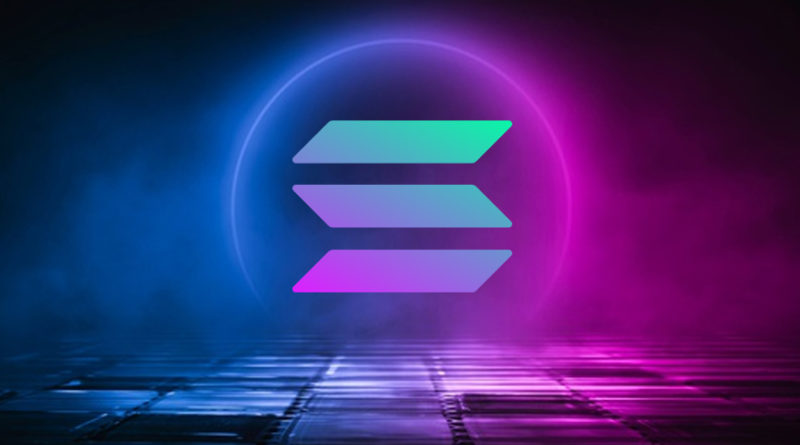Exploring the Revolutionary Altcoin: Solana (Sol Crypto)
In the dynamic world of cryptocurrencies, Solana has emerged as a groundbreaking player, gaining significant traction among investors and developers alike. In this article, we will delve into the intricacies of Solana, often referred to as “Sol Crypto,” exploring its key features, advantages, and its impact on the blockchain landscape.
Understanding Solana’s Core Technology:
Solana, founded by Anatoly Yakovenko, is a high-performance blockchain platform designed to provide fast and cost-effective transactions. Unlike many traditional blockchains, Solana employs a unique combination of technologies such as Proof of History (PoH) and Proof of Stake (PoS), enabling it to scale efficiently without compromising on security.
Speed and Scalability:
One of Solana’s standout features is its impressive speed and scalability. With the implementation of PoH, Solana can timestamp transactions before they are included in a block, streamlining the consensus process and drastically reducing transaction times. This has positioned Solana as a leading platform for decentralized applications (DApps) that require high throughput.
Sol Crypto: The Native Token of Solana:
Sol, commonly referred to as “Sol Crypto,” is the native utility token of the Solana ecosystem. Sol serves various purposes within the network, including staking, transaction fees, and participation in governance. As the demand for Solana’s services grows, the value and utility of Sol are expected to rise, making it an attractive investment for crypto enthusiasts.
Delegated Proof of Stake (DPoS):
The Delegated Proof of Stake (DPoS) consensus mechanism employed by Solana is a key factor in its ability to achieve high throughput and low transaction costs. Unlike traditional proof-of-work (PoW) systems that rely on miners to validate transactions, DPoS involves a selected group of validators chosen by the community through a voting mechanism.
- The Delegated Proof of Stake (DPoS) consensus mechanism employed by Solana is a key factor in its ability to achieve high throughput and low transaction costs. Unlike traditional proof-of-work (PoW) systems that rely on miners to validate transactions, DPoS involves a selected group of validators chosen by the community through a voting mechanism.
- Validator Nodes: In the Solana network, validator nodes play a crucial role in the DPoS consensus. Token holders can vote to elect a set number of validators who will be responsible for validating transactions and producing blocks. This delegation of authority ensures a more streamlined and efficient decision-making process, enabling Solana to achieve consensus rapidly.
- Block Production: Validators in the Solana network take turns producing blocks in a round-robin fashion. The order in which validators produce blocks is determined by the voting weight they receive from the token holders. This democratic approach helps prevent centralization and promotes a more decentralized and secure network.
- Reduced Centralization Risks: DPoS mitigates some of the centralization risks associated with traditional PoW systems. By allowing token holders to actively participate in the selection of validators, Solana promotes a more inclusive and diverse set of network participants. This not only enhances decentralization but also fosters a greater sense of community involvement.
- Efficient Governance: DPoS facilitates efficient governance in the Solana ecosystem. Token holders have the power to vote on important network upgrades, changes in protocol parameters, and other key decisions. This decentralized governance model ensures that the Solana network remains adaptable to the evolving needs of its community.
- Security and Scalability: The combination of DPoS with other technologies, such as PoH, enhances the security and scalability of the Solana network. By optimizing block production and validation processes, Solana achieves faster transaction confirmation times and a higher throughput compared to many other blockchain platforms.
- Incentivizing Validators: Validators are incentivized through token rewards for their role in securing and maintaining the network. This incentive structure encourages validators to act in the best interests of the Solana ecosystem, further strengthening the overall integrity of the network.
Smart Contracts and Decentralized Applications (DApps):
Solana’s commitment to facilitating smart contracts and decentralized applications (DApps) positions it as a versatile and developer-friendly blockchain platform. Leveraging the advantages of its high-performance architecture, Solana provides a robust environment for developers to build, deploy, and scale innovative decentralized solutions.
- Compatibility with Ethereum Virtual Machine (EVM): One of Solana’s strategic advantages is its compatibility with the Ethereum Virtual Machine (EVM). This feature allows developers to seamlessly port their existing Ethereum-based projects to Solana, taking advantage of its superior transaction speed and lower fees. This interoperability has contributed to Solana’s appeal as a platform for decentralized finance (DeFi) and other blockchain-based applications.
- Fast and Low-Cost Transactions: Solana’s unique combination of technologies, including Proof of History (PoH), enables exceptionally fast transaction confirmation times. This speed is crucial for the efficient execution of smart contracts, making Solana an ideal choice for developers seeking a blockchain platform with minimal latency. Additionally, low transaction costs on the Solana network contribute to a more economical environment for running decentralized applications.
- Scalability for Complex Applications: The scalability of Solana is a key feature that benefits developers building complex and resource-intensive decentralized applications. Solana’s ability to handle a high number of transactions per second (TPS) ensures that even as DApps grow in complexity and user base, the network can accommodate the increased demand without sacrificing performance.
- Programmable Smart Contracts: Solana’s smart contracts are programmable and Turing complete, providing developers with a flexible and powerful toolset. This allows for the creation of sophisticated smart contracts that can facilitate a wide range of functionalities, from token issuance and decentralized exchanges to complex financial instruments and governance mechanisms.
- Ecosystem Support and Tools: Solana’s growing ecosystem is supported by a range of developer tools and resources. The platform offers a suite of development tools, including a software development kit (SDK), to streamline the creation and deployment of DApps. Additionally, the community actively contributes to the development of libraries, documentation, and other resources, fostering a collaborative environment for innovation.
- Integration with Oracles and Data Feeds: Solana’s smart contract ecosystem benefits from seamless integration with oracles and external data feeds. This integration enables DApps to access real-world data, enhancing their functionality and enabling the creation of decentralized applications that can interact with external systems.
- Community-Driven Development: The Solana community plays a crucial role in shaping the development of smart contracts and DApps on the platform. Collaboration, open-source contributions, and community-driven initiatives contribute to the growth and diversity of the Solana ecosystem.
Ecosystem and Partnerships:
Solana has fostered a vibrant ecosystem with a growing number of projects and partnerships. The platform’s commitment to fostering innovation has attracted developers, entrepreneurs, and investors, leading to the creation of a diverse range of applications and services within the Solana ecosystem.
Community Engagement:
The Solana community plays a crucial role in the platform’s success. The community actively participates in governance, discussions, and the promotion of the Solana ecosystem. This collaborative approach has contributed to the rapid growth and adoption of Solana within the crypto space.
Summary:
In conclusion, Solana, often referred to as “Sol Crypto,” stands out as a trailblazer in the world of blockchain technology. Its innovative approach to scalability, speed, and governance has positioned it as a formidable competitor in the ever-evolving crypto landscape. As Solana continues to gain momentum, it’s clear that “Sol Crypto” is more than just a token; it’s a symbol of the transformative power of blockchain technology.




